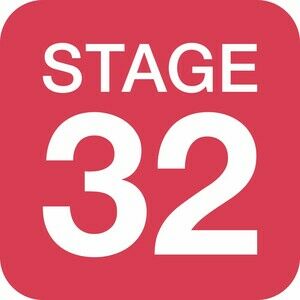How To Work With A Network Once You Sell Your Show


Webinar hosted by: Peter McDonough
Producer & Showrunner Assistant (CBS)
Peter McDonough has spent nearly a decade in the entertainment industry and is a Showrunner Assistant and Producer currently with CBS on the hit series GHOSTS. Peter works directly with Joe Wiseman and Joe Port (NEW GIRL, ME, MYSELF & I, THE LAST O.G., FAM). Prior to joining CBS, Peter was with powerhouse agency CAA under a senior TV literary agent. There he developed material with CAA clients, was involved in getting writers staffed and sold, and packaged series for buyers. Peter started his career at Viacom for Comedy Central and Spike in the Marketing division where he helped promote and launch new series for the network Full Bio »
Webinar Summary

Once you sell your TV show to a network the real work begins as you have to deftly navigate your project forward through development and production to become a successful series on the air!
You will learn every step of this intense process from Peter McDonough, who has worked in the writers' room of the hit CBS series GHOSTS since the first day of development.
PLUS! You'll receive exclusive handouts to help with your own pilot writing including access to the pilot script for GHOSTS!
Congratulations! You’ve accomplished your dream and sold your pilot script to a television network… now what happens?
Many writers are unaware of the huge amount of work that’s still left to do after selling a television show to a network. As a creator, you will be in charge of much more than just driving the creative direction of the show's story. Creating a television show requires staffing, auditions, meetings with the network, managing multiple arms of production, and many other responsibilities that take place behind the scenes. All before shooting even the first scene!
As the series creator, you will be tasked with working with the network to address a slew of questions and decisions before, during, and after shooting. What production roles need to be hired? What creative decisions need to be prioritized? How does the audition process work? When do you hire a writing staff? How much time do you have to make these decisions? While it may sound daunting, there is a pragmatic process to developing a television show and aiming it for a network run.
In this exclusive Stage 32 webinar, you will learn how your television script turns into a hit TV show on air. Teaching you the process that series creators and showrunners go through is Peter McDonough, the Showrunner's Assistant on the CBS hit show GHOSTS. Peter was the first employee hired on the show and has first-hand experience in advancing the show from a pilot order to multi-season series order on CBS’ Thursday Night Primetime lineup.
In this information-packed webinar, Peter will take you through each stage of a television show’s development. Starting from the day a network orders a pilot script into production through a successful first season and to the premiere of a second season. You will learn the different stages of development, production, and distribution that a network series goes through so you can confidently prepare yourself and navigate the intricate process of network television once you sell your show to a network.
PLUS! You'll receive exclusive handouts to help you navigate the world of network television.
You will walk away from this webinar understanding the entire process of taking your original TV series idea and taking it all the way to becoming a hit so that you know what to expect when you sell your series to a network!
"I am thrilled for the opportunity to share my professional experience in Network Television with Stage 32's creative community. As a former recipient of Stage 32's services, I feel honored to provide some insight that will benefit the next generation of television writers. I look forward to seeing all the writers and hope to give you any info you need to help pursue your professional television goals." - Peter McDonough

What You'll Learn
- The structure of “Pilot Season”
- The process Networks go through to prepare for their fall lineup
- How Networks strategize their script orders
- The meaning of when a show gets a “pilot order”
- What needs to be done immediately following a “Pilot Order”
- The production roles that need to be filled and their responsibilities on the show
- The creative decisions that take priority
- The process of hiring a production staff
- How the studio involves itself in the process and the hierarchy of decision-making
- The tasks that need to be completed before the show is ready to shoot
- What happens after the Pilot is shot?
- The process of “test screening” the pilot
- How the Network gives notes on a pilot
- How long the decision process takes
- How a network determines which “pilot orders” receive “series orders”
- What happens after a show receives a “Series Order”
- Securing the final cast
- Preparing a production schedule to meet the premiere date
- Writing and shooting the rest of the season
- Staffing the writers room
- How the room organizes the season’s story
- How a show gets written and shot at the same time
- The premiere of a show
- Marketing a show
- The influence of audience reactions to the creative process
- What happens after all the episodes are written
- Wrapping up the season
- The final stages of a show’s production
- What happens “in-between” seasons of a show
- How Networks determine which shows will return
- What happens when a show is renewed or canceled
- Q&A with Peter
About Your Instructor

Peter McDonough
FAQs
Q: How do I watch my webinar live?
A: If you received a confirmation that your webinar is on Go to Webinar, you will receive an email from Go to Webinar with further instructions for participating in the live webinar. You can also access your webinar link in your purchase history located under settings in the top right-hand corner of your Stage 32 profile.
If you received a confirmation that your webinar is on Zoom, you will receive a separate email from Zoom with further instructions for participating in the live webinar. Your login link will not be in your Stage 32 profile. If you did not receive your link via Zoom please email support@stage32.com.
Q: How do I watch my webinar on demand?
A: You will be able to watch your webinar on demand as many times as you’d like inside your Stage 32 profile. The recording is processed and posted between 24-48 hours after the webinar concludes. You can follow the instructions below.
YOU MUST HAVE A STAGE 32 PROFILE TO WATCH YOUR VIDEO – STAGE 32 IS FREE TO JOIN
If You Already Have a Stage 32 Profile:
- Log into your Stage 32 profile
- Click "Settings" in the top right-hand corner (gear icon)
- Click "Purchase History"
- Choose this webinar and click the link to view
- Go to www.stage32.com
- Create a profile using the SAME email address you used to sign up for this webinar. The email addresses must match in order to watch the webinar.
- Once you have your profile set up, you can view the webinar by clicking "Settings" in the top right hand corner (gear icon)
- Click "Purchase History"
- Choose this webinar and click the link to view
Q: What is the format of a webinar?
A: Stage 32 Next Level Webinars are typically 90-minute educational broadcasts that take place online using a designated software program from Stage 32. Your webinar will be taught by a working industry professional with in-depth teaching on a topic. If you are able to attend live you will be able to ask your Stage 32 Educator questions during Q&A.
Q: What are the system requirements to watch my webinar live?
A: You will need to meet the following system requirements in order to run the webinar software: Windows 7 or later Mac OS X 10.9 (Mavericks) or later.
If you have Windows XP, Windows Vista and Mac OS X 10.9 (Mountain Lion): The webinar software does not support these operating systems. If you are running one of those operating systems, please upgrade now in order to be able to view a live webinar. Upgrade your Windows computer / Upgrade your Mac computer.
Q: What if I cannot attend the live webinar?
A: If you cannot attend a live webinar or purchase an on demand webinar, you will have access to the entire recorded broadcast, including the Q&A.
Q: Will I have access to the webinar afterward to re-watch?
A: Yes! Like all Stage 32 education, after the purchase of a live or on demand webinar, you will have on-demand access to the recording.
Q: How do I get a copy of the handouts provided?
A: If the webinar you take included handouts you can find them as downloads underneath your on demand video. You must be logged into your Stage 32 profile to view the video and get the handouts by clicking settings in the top right hand corner, then clicking purchase history.
Q: What if I need accessibility and accommodations?
A: Email support@stage32.com to request accommodations.
Thanks for your loyalty to Stage 32 Education. We value having you in the Stage 32 community.
If you have any further questions, we are always happy to help. Please contact Stage 32 support at support@stage32.com.
Relevant Tags
Share with friends:
Questions?
Other education that may be of interest to you:
Stage 32 Workshop: How to Find and Work with Tax Incentives – with a Walkthrough of an Online Application
Viviana Zarragoitia, the VP of Three Point Capital, explains how exactly to take advantage of tax incentives for your own project with a walkthrough of an online application. PLUS! Viviana brings in a special guest - Philip Gilpin of the Duluth, MN incentive program It’s important for you to understand how various tax incentives work, because a lot goes into deciding where to shoot and how to piece together projects based on these incentives. They’re a big part of funding projects. Understanding the criteria, how to properly fill out applications, working with local film funds and associations, knowing what is due when, and knowing when money flows back to you are just some of the pieces that go into putting together a film or series as it relates to tax incentives. If your head is spinning a little, don’t worry. With the right guidance, this will all make sense to you and you’ll be on your way to making sure you make the most out of the appropriate tax incentives for your next projects. Viviana Zarragoitia is the Vice President of Three Point Capital, one of the entertainment industry's top financiers that specializes in senior lending on film and television projects. Through Three Point, Viviana closes the financing on every film that the company is involved in. She has been involved in the financing of over 100 independent films, and worked with such producers as Cassian Elwes (DALLAS BUYERS CLUB), Rob Barnum (MARGIN CALL), Anthony Bregman (ETERNAL SUNSHINE OF THE SPOTLESS MIND), James Schamus (BROKEBACK MOUNTAIN), Aaron Gilbert (JOKER), Kimberly Steward (MANCHESTER BY THE SEA), Nicolas Chartier (THE HURT LOCKER) and Kevin Frakes (HEREDITARY), among others. Before Three Point Capital, Viviana worked in accounting at Millennium Films and Bold Films, as well as in the finance division of Lionsgate, where she oversaw the preparation of multi-million dollar film and television distribution deals. Viviana has seen it all when it comes to film financing and knows intimately well how to take advantage of domestic and international tax incentives. In this extended on-demand class, Viviana walks you through the types of incentives and how to access them, domestic and international tax credits, and how to monetize incentives. She also discusses the effects of tax incentives in the entertainment industry and locally, as well as how to decide on a jurisdiction based on creative and financial elements. Plus! Viviana gives a workshop and goes over an online application for a tax credit. Viviana even brings in a special guest- Philip Gilpin of the Duluth, MN Incentive Program--to take part in a Q&A that answer questions on making tax incentives work for your projects. Praise for Viviana's Past Stage 32 Financing Classes: "As an experienced film and television producer and writer, Viviana's class was just the refresher - and inspiration - that I needed! Having been a completion producer for a bond company, I have seen too many producers who were let down in the producing process by so-called-professionals who offered support at the on-set of a production, but then failed to deliver when needed. Viviana and her company Three Point Capital have an excellent reputation, and her counsel provided in the class solidified that. I highly recommend both Viviana and Stage 32 Education!" -Patricia C. "Viviana was personable, professional, interesting, interested, and a wealth of knowledge and useful information. I will take every opportunity to learn from her. She was patient and polite with every question and always clear with what she knew, what she thought, what she believed, and what she didn't know. She painted pictures and delivered facts, outlining the paths she has seen successful producers take while still encouraging all to pursue their art with a greater knowledge of the business and understanding of the challenges and potential pitfalls." -Randy G. "As someone who was totally new to the world of film financing, trying to learn about the process by myself was intimidating to put it lightly. Viviana clearly explains the film financing process step-by-step and demystifies the complex, bespoke nature of pre-sales, tax credits, sales agents, and so much more. I feel infinitely more confident in my ability to produce a film thanks to this class. I give it the highest possible recommendation for any independent filmmaker looking to finance their film and take their projects to the next level." -Sean R.
10 Years Of Tricks Of The Trade In 90 Minutes: What They Don’t Teach You In Film School
Just going to film school doesn’t prepare you for the endless obstacles you’ll face trying to make it as a filmmaker. You learn that pieces that come together to make a movie in school but this is the film industry and it's totally different. From studios to independents, your host Aaron Wolf has learned some secrets of the trade....come on the journey! You can’t find this stuff in school or in a book. You have to live it. And Aaron has. From being a student at NYU to being a part of The Groundlings, to working with FOX, Warner Bros. and Disney and dealing with film festivals and independent distributors, Aaron has seen it all in a short time. He wants to share the secrets with you. Just going to film school doesn’t prepare you for the endless obstacles you’ll face trying to make it as a filmmaker. Just getting a job in LA doesn’t prepare you. Creativity comes in many forms. One form is creatively navigating the business so that YOU can live your dreams. With his recent film, Restoring Tomorrow, being acquired by Seventh Art and featured in Variety, Aaron has learned through trial and error on how to make a living as a filmmaker. Join him in this exclusive Stage 32 webinar as he discusses what he's learned, and what you need to know for your own journey! Twitter: @TheAaronWolf Instagram: @TheAaronWolf Facebook: Aaron Wolf
How To Use An Inciting Incident For Maximum Effect In Your Screenplay
Learn how to supercharge your screenplays by properly using your "inciting incidents" from a writer/producer who has worked with HBO, Universal, Fox, CBS, and more! PLUS! You will receive exclusive handouts to help you in crafting your own inciting incidents to take your screenwriting to the next level! We all know that moment in our favorite films that hooks us in - the moment the status quo drastically changes for our main characters and propels our protagonists into the heart of the story. This moment is called the “inciting incident” and is arguably the most critical moment in any screenplay. When legendary filmmaker Billy Wilder said about screenwriting "if you have a problem with the third the real problem is in the first act" he was referring to a screenplay's inciting incident. However, many writers don't maximize the effect of their "inciting incident" properly leading to other issues throughout their scripts. So what constitutes an inciting incident that supercharges your screenplay and what differentiates it from other major plot points in your story? How can you create a powerful, meaningful and properly placed inciting incident in your story that will set your script apart from the rest and truly engage your reader? In this exclusive Stage 32 webinar, you’ll also learn how to craft a compelling inciting incident for your story that will set your script up for success. Teaching you this key screenwriting fundamental is veteran film and television writer and producer Brian Herskowitz. Brian has worked on over 2 dozen films and television shows (HBO, FOX, CBS, NBC, UNIVERSAL and more) and he's bringing his experience to the Stage 32 community to help you improve your craft! PLUS! You’ll receive exclusive handouts to help you in creating your inciting incident. Downloads include: Definition of terms Copies of examples from various scripts, including Avatar and Hereditary. Excerpts from the book PROCESS TO PRODUCT: From Concept to Script: A Practical Guide for the Screenwriter. Brian will teach you how to define, set, and make the most of your inciting incident by giving you tools, exercises, and examples to put your script and protagonists on the right path. This webinar will help you take your screenwriting to the next level. Testimonials for Brian's Teaching and Stage 32 Education “As a collaborator with Brian and a guest in his class, I am hugely impressed with his screenwriting knowledge. I heartily recommend him and his course.” -- Jason Alexander (Seinfeld, Pretty Woman, Listen Up) "I have a master's degree and a doctorate, Brian is by far the most caring and best teacher I have ever had." -- Alan J. "The course was everything I needed and then some. An excellent course." -- Katie R. "Mr. Herskowitz is very knowledgeable, patient, and superb at discerning problems and helping us solve them." -- Sandra O. "A solid course in which I felt I had learned a LOT by the time it was over." -- Peter L.
The Executive Hour with Producer Natalie Qasabian
This week, Jason speaks with producer Natalie Qasabian, who has forged a successful career producing independent films which have had tremendous commercial success! Natalie began her career producing three films for the indie film duo the Duplass Brothers, including Duck Butter directed by Miguel Arteta, Natalie went on to produce All About Nina starring Mary Elizabeth Winstead and Common. Later, Natalie produced Searching, a thriller starring John Cho and Debra Messing which was acquired by Sony at Sundance in 2018 and went on to gross $75M at the box office! Currently she's producing Run, starring Sarah Paulson for Lionsgate as well as the sequel to Searching for Sony. Natalie talks about starting her career as a Line Producer and Production Manager, and how that allowed her to make independent films for a modest budget. Natalie shares her insights on the effectiveness of proof of concept videos, how first-time filmmakers can attract financing, and the inside story of how she sold Searching to Sony at Sundance!
Sasha Nonas-Barnes, Producer and Development Executive
Producer Sasha Nonas-Barnes joins our Panel as we listen and read your pitches live to help educate the Writers' Room screenwriters on what is and isn't working in their pitch.
Stage 32 Presents: Global Film & TV Production Summit
Welcome to the Stage 32 2023 Global Film & TV Production Summit! Join us for an exclusive virtual summit where top executives from the entertainment industry converge to explore the ever-evolving landscape of global film and television production. Discover insights, trends, and strategies that are shaping the future of entertainment. Join speakers from HBO/MAX, Emmy-nominated hit show THE BEAR (Hulu), Emmy-nominated hit show GENIUS (Disney/NatGeo), Screen Ireland, Catalyst Studios and more! About the Summit Date: October 19, 2023 Time: 9:00am PT - 1:30pm PT Location: Virtual, exclusively through Stage 32 Why Attend? At the Global Film Production Summit 2023, we bring together the brightest minds in the entertainment industry to share their expertise, experiences, and visions for the future. This summit is your opportunity to: Gain Industry Insights: Hear from industry leaders who are at the forefront of global film and television production. Learn about the latest trends, challenges, and innovations shaping the entertainment landscape. Network with Experts: Connect with executives, producers, and creative minds from around the world. Build valuable relationships that could lead to exciting collaborations. Discover New Opportunities: Explore opportunities for investment, co-production, and distribution in the global entertainment market. Stay Informed: Stay updated on the latest technologies and strategies that are transforming the way content is created, distributed, and consumed. Join us at the Global Film Production Summit 2023 to be at the forefront of the entertainment industry's evolution. Don't miss this chance to gain valuable insights, network with industry leaders, and shape the future of global film and television production. We look forward to seeing you there!







